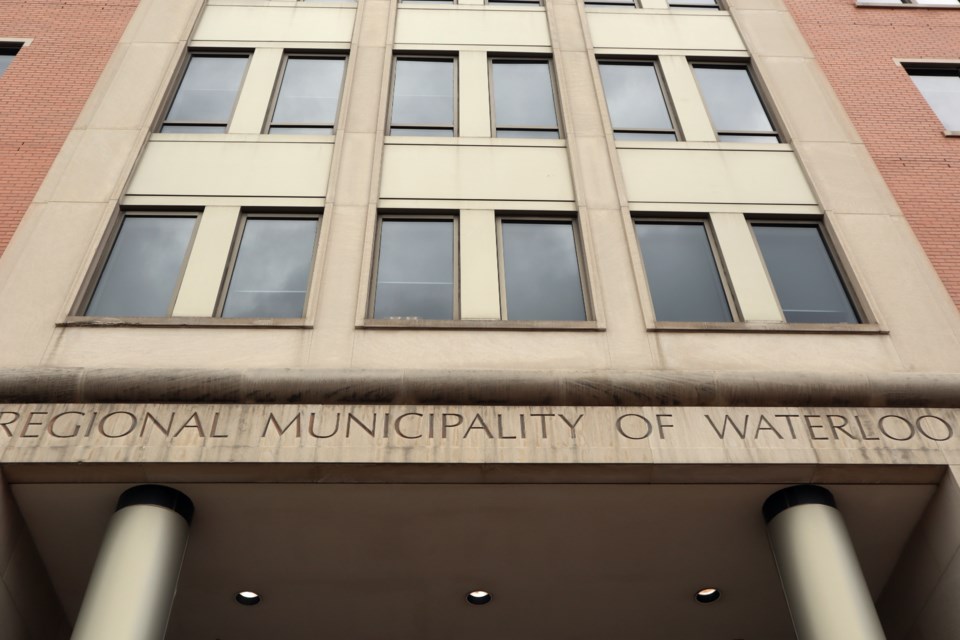Regional councillors got a stark warning Tuesday about the impact of escalating fuel prices and inflation on next year’s budget, including what it will mean for everyone’s tax bill.
Staff predict inflation and other factors will force a $32.4 million increase in the 2023 operating budget.
Combined with service expansion needs of $14.9 million and other costs, it will result in an overall increase of $46.4 million and have a direct tax impact on regional services of 8 to 10 per cent.
Unless those costs go down, regional taxpayers can expect to see a 5.5 to 6.8 per cent increase on their overall tax bills next year.
Those numbers, by the way, exclude the police budget, which at the end of 2022 was predicted to rise by 8.6 per cent in 2023, adding to the tax increase.
A one per cent change in total regional taxes in 2023 represents an increase of $22 on the region’s portion of the tax bill for the average home assessed at about $360,000.
“This hits our capital projects, it hits our service contracts and we’re seeing those increases pretty much in every case higher than what we’ve budgeted,” said Craig Dyer, the region’s chief financial officer, during Tuesday's administration and finance committee meeting.
Adding to the uncertainty are continuing supply chain challenges and significant escalation in construction costs which saw year-over-year price index increases of between 13 and 17 per cent year in the first quarter of this year.
Rising interest rates, the lowest unemployment rate the region has seen in close to 40 years, and population growth that’s outpacing the national average are also adding to the financial stress. Despite that growing population, assessment growth is only expected to be 1.5 per cent next year, Dyer said.
“If we translate that into capital projects for next year, we’ll have significant inflationary pressures to build in,” he added.
But the need for capital projects to support all that growth can’t be ignored.
Pressure is mounting to fill existing service gaps in public transit, affordable housing, the emergency shelter system, paramedic services, active transportation and airport expansion.
The region is also experiencing low reserve balances and has “elevated levels of debt” compared to municipal peers with a triple A financial rating.
Dyer said the region will need to take on significant growth-related debt in the coming years to keep up.
By the end of 2022, the region will already be in the hole with a predicted $4 to $6 million budget shortfall due to added fuel costs and other factors related to inflation.
And those projections are only based on information up to the early part of May.
The most significant variance, he said, is in the public transit budget due to the impact of fuel prices.
The region’s 2022 fuel budget was set at $13.7 million based on approximately 12.9 million litres of diesel and gasoline, based on prices of $1.06/L for diesel and $1.08/L for gasoline. Prices when the report was written early last month were approximately $1.95/L for diesel and $1.81/L for gasoline.
“When we were putting the budget together in the summer and fall of last year, all of the major Canadian banks were projecting inflation in 2022 in the two to three per cent range. And we’re at least double if not triple those rates right now,” Dyer told council.
The predicted budget shortfall for 2022 takes into account recent fuel price escalation, applying savings from other areas, and using uncommitted provincial gas tax funding and COVID funding from the feds and province carried forward into this year.
He said the region will continue to monitor costs and report back to council with a more detailed projection in a mid year financial update.
Dyer said the idea is to clear the shortfall from 2022 by using money from the Tax Stabilization fund so the region can “start fresh” in next year’s budget.
“You must have nightmares,” said North Dumfries Mayor Sue Foxton before asking if increasing costs in the capital budget are having an impact to the same degree it is on the operating budget.
Dyer said there are still a few projects to award from tender but that it’s nowhere near as big a concern as next year’s capital program, which will likely require “significant adjustments” across the board to reflect 2023 dollars.
Seeking to express how much the homelessness crisis has had an impact this year, Coun. Elizabeth Clarke sought clarification on how much the region is spending on “unbudgeted” initiatives that are traditionally the domain of the provincial government.
The region is spending about $80,000 a month to support an encampment in Kitchener, but Dyer said the cost relative to other impacts is small.
Dyer agreed it’s something that needs to be worked out.
“Municipalities simply don’t have the revenue tools to deal with some of these broader social equity issues and yet we get continually pushed in that direction,” Dyer responded, adding it will be something for the incoming council to consider as they debate next year’s budget.
“The demands and expectations for the region to move into areas that we’ve traditionally not funded are only going to continue to grow and there’ll be some significant policy decisions that the incoming council will need to make in the future.”
The region’s CAO Bruce Lauckner reminded council the region is spending $29 million to help solve homelessness this year and $5.5 million of that is from the tax levy.
“That doesn’t even meet existing demand, we all know, so, we’re facing growing pressure, not only in our region but all single tier and regional governments are facing that across the province,” he said.
Dyer said staff believe the province will extend two two funding programs that are set to expire at the end of 2022, both of which support the region’s emergency shelter system.



